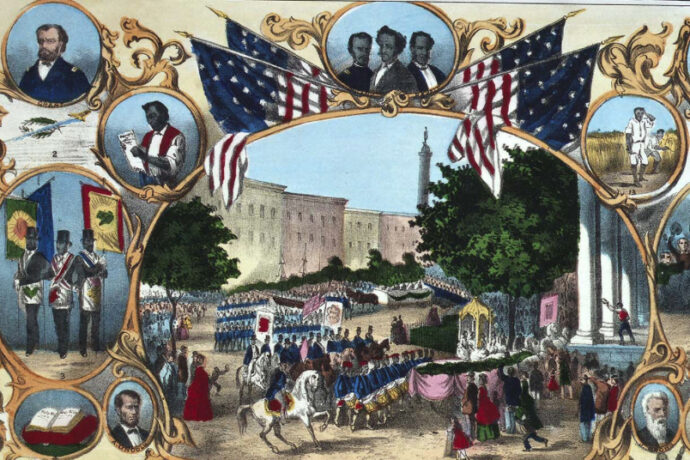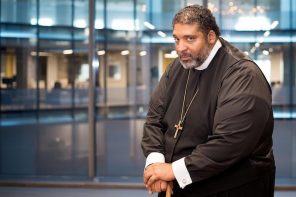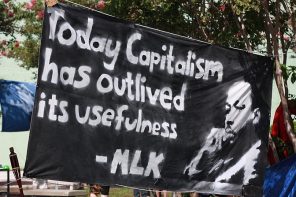From the very beginning of Rev. William Barber’s ministry in the state of North Carolina that we now know as Moral Mondays, he has challenged his fellow North Carolinians to remember their heritage. Not the racist myths of the Old South but a genuine progressive heritage that produced in North Carolina the South’s finest public universities, paved roads, and established public libraries at a time when so many of the other states of the South made private wealth and public squalor their operating principle.
 In his new book and in his interview here in Religion Dispatches, Rev. Barber asks us to imagine the future of the South through the framing of a Third Reconstruction. In using this framing, he challenges us to understand that history can go both forwards and backwards—that, as he puts it, “black people in North Carolina had more political power in 1868 than they did in 1968.” He urges us to see the Reconstruction period and the great 20th century civil rights era as times when a different kind of America came close to being born. And he acknowledges the bitter truth that, in different ways, the bad guys ultimately prevailed both times in the South—that “the monied elites of plantation capitalism” came out on top—both in the late 19th century and again in the late 20th century.
In his new book and in his interview here in Religion Dispatches, Rev. Barber asks us to imagine the future of the South through the framing of a Third Reconstruction. In using this framing, he challenges us to understand that history can go both forwards and backwards—that, as he puts it, “black people in North Carolina had more political power in 1868 than they did in 1968.” He urges us to see the Reconstruction period and the great 20th century civil rights era as times when a different kind of America came close to being born. And he acknowledges the bitter truth that, in different ways, the bad guys ultimately prevailed both times in the South—that “the monied elites of plantation capitalism” came out on top—both in the late 19th century and again in the late 20th century.
Bitter realities, indeed. America’s labor movement once showed the world that working class people could lead middle class lives. But in our lifetime we have become among the world’s most unequal societies, with an economy defined by wage stagnation. Close and sober analysis shows that the key political and economic driver of this sinister transformation has been the continued power of those who are still able to maintain plantation capitalism in the South while seeking to spread it elsewhere. As Rev. Barber says, the South is still where we as a nation will decide who and what we are
If we want America to prosper in the 21st century, and if we want to experience a rebirth of American democracy, progressives must heed Rev. Barber’s call for a Third Reconstruction. We must see and embrace the fusion of demands for racial and economic justice within a broader vision of human liberation. We must unite to achieve “a third act of faith” in the broad sweep of American history.





